Prayut versus Prawit — old comrades at war as government's popularity continues to plummet
Also in this edition: The king reappears after going missing for months, lèse majesté charges are being thrown around indiscriminately, and rules are set for how humorous monks are allowed to be
Welcome to the latest Secret Siam news roundup. It’s been a while since I last published one of these because I spent most of my time over the past month following the dramatic conspiracy that nearly toppled prime minister Prayut Chan-ocha. My article with the inside story of what happened is here, and in this newsletter I’ll update you all on some of the other interesting developments in Thailand over the past month.
Secret Siam is an independent newsletter fully funded by readers, so if you find it useful please subscribe, your support would really help my journalism.
Besides the remarkable story of the plot against Prayut, here are the other most interesting developments of the past few weeks.
Bad blood amid a bad flood
Tropical storm Dianmu has caused flooding and disruption across a swathe of Thailand, particularly in the central plains. The regime’s response has highlighted the deep divisions that remain after the abortive plot to stab the prime minister in the back, with Prawit Wongsuwan and Prayut Chan-ocha making multiple competing trips to areas hit by the disaster.
Last Wednesday, Prawit travelled to Ayutthaya with his notorious sidekick Thamanat Prompow and their ally Narumon Pinyosinwat. Prayut fired Thamanat and Narumon from the cabinet on September 8 over their involvement in the conspiracy to remove him from office, but they have retained their senior positions in the Palang Pracharat Party and Prawit continues to signal his support for them. The entourage to Ayutthaya was accompanied by more than 50 Palang Pracharat MPs.
The same day, Prayut made a much lonelier visit to Phetchaburi, accompanied by interior minister Anupong Paochinda who is on his side in the civil war among the “three Ps” in which Prawit has turned against his two junior comrades, and a small entourage with a handful of MPs.
Prawit and Prayut continue to unconvincingly claim that everything is fine between them. “We have been close for over 50 years. Reports about us parting ways are nonsense,” declared Prawit last week, while Prayut told a defence council meeting: “There is no rift between me and brother Pom. There is only love between us and it will stay forever that way. Nothing will come between us.”
But actions speak louder than words and the separate trips were a clear sign that they are still at war.
Prayut made another flood inspection trip on Sunday, again with Anupong, with Prawit nowhere to be seen. Official photographs showed Prayut pointing at a map on the flight to Sukhothai as Anupong looked on intently. There was no explanation of how pointing at a map would help people affected by the floods.
On arrival in the affected area, Prayut apparently considered himself too important to have to wade through water like everybody else. Video footage showed him sitting comfortably aboard a boat which several men guided through the deluge.
Justice minister Somsak Thepstuthin, who accompanied Prayut’s entourage on Sunday’s trip, was photographed being carried through the floodwaters on a lackey’s back.
Meanwhile, the official Facebook page of the Ministry of Education published a fake photograph of deputy education minister Kanokwan Wilawan wading through floodwaters. “Teacher Oh is closely monitoring the flood in many areas, including the situation of schools and education facilities under the ministry’s supervision,” the caption stated, using Kanokwan’s nickname. The image was clearly crudely doctored, with the minister’s truncated legs floating over the floodwaters.
Further investigation showed the image of Kanokwan had been taken from a photograph from last year and inserted into a new background. As always in Thailand, it was the underlings who got the blame. The Ministry of Education said its social media team was solely responsible for the deception and Kanokwan was not involved.
Mafia state
In another sign that the conflict between Prawit and Prayut is far from settled, General Vit Thephasdin Na Ayutthaya has been appointed as head of the Palang Pracharat Party strategic committee. He sat by Prawit’s side at a meeting of party MPs on September 15.
Vit is an old friend of Prawit and also has close ties to Thamanat — as well as to Thaksin Shinawatra.
He’s a notoriously corrupt figure with significant links to organised crime. He was an ally of the notorious military gangster General Trairong Indharathat, known as “Seh Ice”, who was probably the most powerful and feared underworld figure in Bangkok in the years before his death in 2016 at the age of 66.
Trairong was a classmate of both Thaksin Shinawatra and Anupong Paochinda in class 10 at the Armed Forces Academy Preparatory School in Nakhon Nayok. After Thaksin became prime minister in 2001, he appointed Trairong as his chief bodyguard and main security advisor, and turned a blind eye to the multiple criminal enterprises overseen by Seh Ice.
Shortly before Trairong’s death, a leaked intelligence report by the army’s 1st Division, King’s Guard, named Trairong and Thamanat among four key criminal godfathers running illegal enterprises in Bangkok.
Prawit’s decision to bring Vit into his inner circle in Palang Pracharat is another signal of his breach with Prayut and his determination to secure a strong electoral performance in 2023, regardless of what it takes, and even if it means doing deals with Thaksin. He has promised the party’s restless MPs that he will ensure they win 150 seats at the next election.
It seems extremely unlikely that Palang Pracharat would nominate Prayut as a prime ministerial candidate for the next election. Prayut’s time in office is likely to end in 2023, if not before.
Absolute madness
King Vajiralongkorn has been missing for months, failing to take part in any public duties, but he appeared again at a ceremony on September 24 for Mahidol Day, which honours his grandfather Prince Mahidol Adulyadej. As usual he was accompanied not just by his wife Queen Suthida “Nui” Tidjai but also his official consort Sineenat “Koi” Wongvajirabhakdi.
A palace statement described the events of the evening, including the donation of several vans from Thai and Japanese executives of Toyota Thailand. The king’s appearance on Mahidol Day was also reported on Thai royal news, of course, along with a discussion of Princess Chulabhorn’s supposed musical genius.
Meanwhile, in another absurd attempt to use the pandemic for royal propaganda, the government said it would start vaccinating a million people daily from Mahidol Day onwards.
Prachathai has published an extremely important analysis showing that on at least 112 occasions since 2017, Vajiralongkorn has issued royal edicts without any countersignature. He is ruling like an absolute monarch, issuing edicts without any oversight from the elected government.
Among the king’s decrees lacking a countersignature include his announcement in June 2018 that he was taking direct personal ownership of the assets of the Crown Property Bureau, worth at least $80 billion; his statement denouncing Thaksin Shinawatra’s attempt to enlist Princess Ubolratana as a prime ministerial candidate for the 2019 election; and his promotion of Koi to the role of official consort, subsequent denunciation and jailing of her, and her eventual rehabilitation.
The fact that Vajiralongkorn just issues whatever decrees he wants without any oversight, and Prayut and the cabinet are unable or unwilling to stop him, or even just to persuade him to follow accepted constitutional norms, shows the extent to which the king is out of control.
The story by Prachathai doesn’t touch on the fact that during the last couple of years of King Bhumibol’s reign, the monarch was incapacitated and comatose and unable to give his approval to royal edicts, and yet palace proclamations continued to be published in the Royal Gazette supposedly with the approval of the palace. This could only have happened with the acquiescence of the junta allowing Vajiralongkorn to issue edicts with the fake signature of his father.
The king is determined to circumvent any control over his authority and do whatever he wants. This was why he ordered cabinet ministers to omit a promise to respect the constitution during their swearing-in ceremony in 2019, and declare loyalty only to the palace.
It’s long been clear that Vajiralongkorn is trying to turn back the clock to the era of absolute monarchy, and nobody in the current Thai regime dares to try to stop him.
Meanwhile, the latest information from my sources is that Vajiralongkorn is likely to return to Germany in November, after unwillingly spending more than a year in Thailand due to the coronavirus and the anti-monarchy protests.
Minions on the march
The regime continues to abuse the lèse majesté law to try to silence protesters calling for royal reform. On August 27, the 18-year-old Supitcha “Maynu” Chailom who made a famous speech in Chiang Mai last year was summoned by police on charges of 112.
A few days later on August 30, Tanat Thanakitamnuay, a former royalist rich kid who has surprisingly become one of the most prominent young Thais demanding reform, was served with a lèse majesté complaint too after a far-right vigilante group, the People’s Network for the Protection of the Royal Institution, approached the police.
Tanat was blinded in his right eye in August when he was hit in the face by a tear gas canister fired by police during a protest. Coincidentally, Thailand’s former monarch Bhumibol lost his right eye in 1948 when he crashed his Fiat Topolino sports car near Lausanne in Switzerland. Royalists have accused Tanat of deliberately dressing like Bhumibol and carrying a camera at a pro-democracy rally last month in a deliberate attempt to draw a parallel between their eye injuries, and this is their justification for lodging a lèse majesté complaint.
Meanwhile, another Thai royalist group whose members openly boast about being “minions” like the faithful yellow followers of antihero Gru in the Despicable Me movies has also been persecuting Thais with different opinions.
Varisanan Sribowornthanakit, admin of the ultraroyalist “Cheer Lung” group, filed lese majeste complaints against 29 people on September 6 at Bang Phlat police station. Varisanan said she had received numerous tip-offs about content that defamed the monarchy and her group plan to file complaints against at least 58 people. Police said they will look into the allegations.
“We, the Minion Army, are the ones putting the gold leaf on the back of the Buddha image,” Varisanan said. “It hurts our hearts whenever anyone defames or criticizes the monarchy. ...Do not bring down the monarchy, they're not involved. Ask your parents and grandparents, who will tell you the truth.”
.
Varisanan was accompanied by Thitiwat Tanagaroon, an eccentric tattooed ultraroyalist who was praised last year by Vajiralongkorn who called him “very brave, very good”.
Most recently, Akkarasorn Opilan, the 17-year-old niece of progressive billionaire Thanathorn Juangroongruangkit, has been summoned to face a lèse majesté charge over a deleted social media post, again after the intervention of royalist vigilantes.
Protests likely to escalate
Since the start of August, protests have been held almost daily in Bangkok. They tend to be much smaller in scale than the mass rallies that shook the monarchy last year, and the movement is splintered into multiple groups, but the persistence of the protesters is having an impact. Day after day, Thais are on the streets demanding royal reform and a change in government, and almost every night young disaffected youths clash with police in the Din Daeng area.
In a humorous homage to one of the main protest groups — Jatupat “Pai” Boonpattararaksa’s organisation Thalufah, which means smashing through the sky, a reference to challenging the monarchy — the youth who gather for nightly battles at Din Daeng call themselves Thalugas, because they constantly have to battle tear gas fired by police.
The police have adopted extremely violent tactics to try to crack down on the protesters. One particularly egregious attack was on August 22 when police knocked dozens of young people off their motorbikes.
On September 6, police used motorbikes themselves to pursue and attack protesters.
It seems only a matter of time before police kill somebody at Din Daeng, which would cause much larger clashes to erupt.
Among several useful recent articles on the protest movement, an analysis in The Economist noted that many wealthier Thais are starting to join the protests:
The government seems to have expected that the use of draconian laws to arrest the student leaders would end the protests. Instead the anti-government movement has mutated, infecting new groups of Thais. The rallies in Bangkok include Range Rovers and other luxury cars owned by members of the monied elites who typically back the establishment that Mr Prayut represents.
Rebecca Ratcliffe has an article about the Din Daeng clashes for The Guardian, and the South China Morning Post has produced a video story about the protests.
Prawit Rojanaphruk also wrote a guide to the various protest groups for Khaosod English.
Now that Prayut has apparently survived an attempt by some of his powerful former allies to oust him, and coronavirus restrictions are set to be further eased with the number of new daily cases dropping sharply, protests are set to escalate again in the months ahead.
Cultural vandalism
In August, the Ministry of Culture declared it was stripping beloved 76-year-old author and editor Suchart Sawasdsri of his title as a “national artist” because of his “dishonourable” support for pro-democracy protests. National artist status includes a monthly stipend of 25,000 baht plus health insurance and various other privileges. It is traditionally awarded to Thais who have excelled in the cultural realm. Suchart was named a national artist in 2011 because of his contribution to Thai literature and the decision to rescind his status has sparked an outcry among writers and academics.
Only 30 percent humour allowed
There has been uproar among Thai conservatives over the light-hearted sermons of two monks, Sompong Talaputto and Paiwan Warawunno, which became hugely popular after being livestreamed on Facebook.
Right-wing activist Srisuwan Janya said their sermons “tainted the religion” and filed a complaint to Sangha Supreme Council. He was apparently unaware that Buddhism is supposed to promote tolerance and has no prohibition on humour. In a televised debate, Paiwan Warawunno advised him to “allow some humour into your life, and do not treat laughter as deadly”.
The monks were summoned before the parliamentary committee on religion, art and culture, where it was agreed that humour could make up only 30 percent of their sermons at most, with serious Buddhist teaching making up the remaining 70 percent.
Jack backs down
Finally, last month I wrote about how British social media influencer Jack “dekfarang” Brown was suing a young Thai woman for defamation because she criticised him on social media. Thanks to a social media campaign, plus the help of lawyer Winyat Chartmontree who agreed to represent the defendant pro bono, we were able to convince Brown to drop all charges. Many thanks to everybody who helped achieve this outcome.
That’s all for this edition. Thank you for following Secret Siam! 🙏


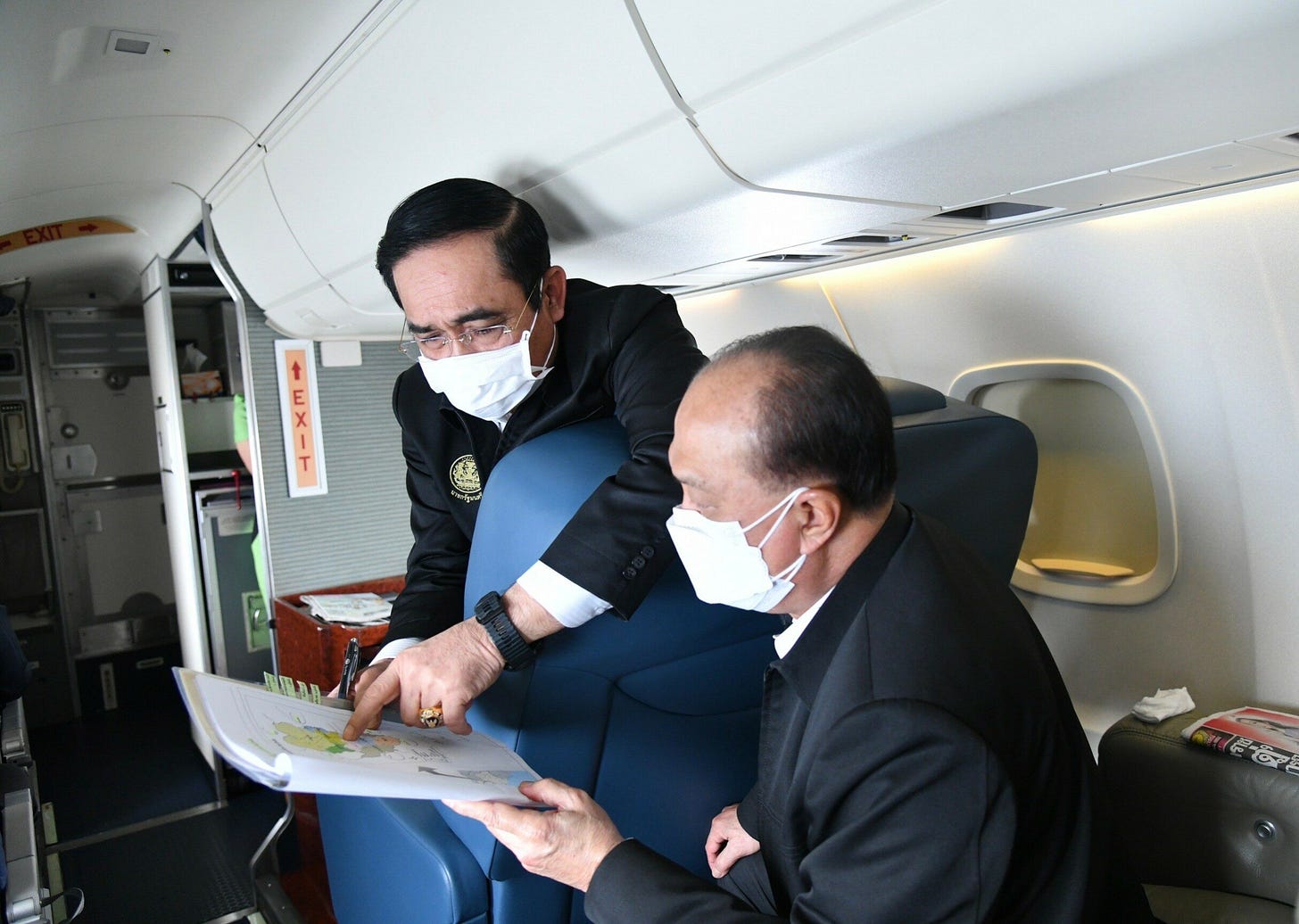


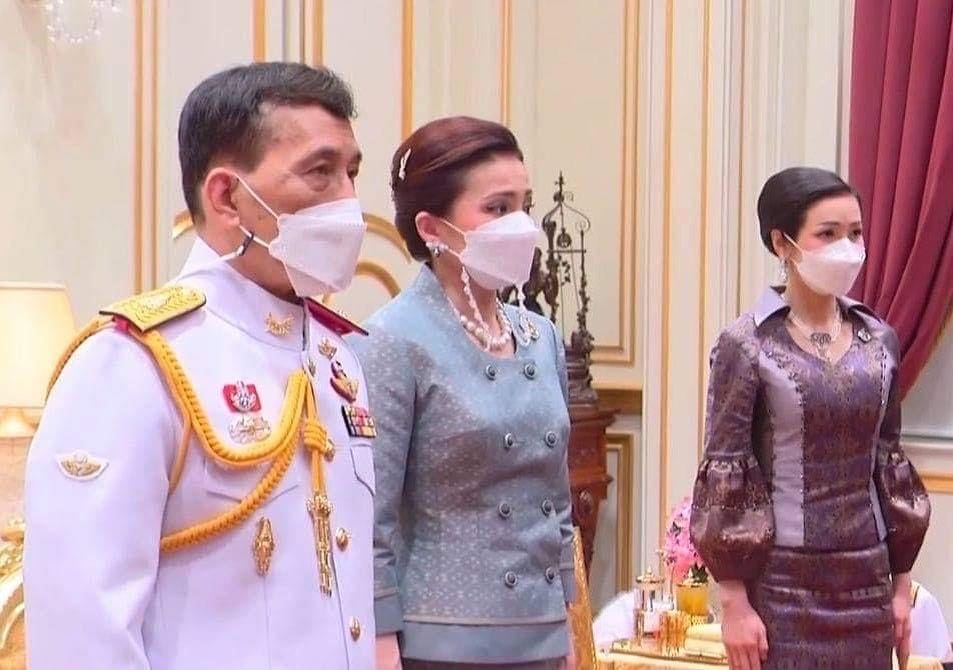
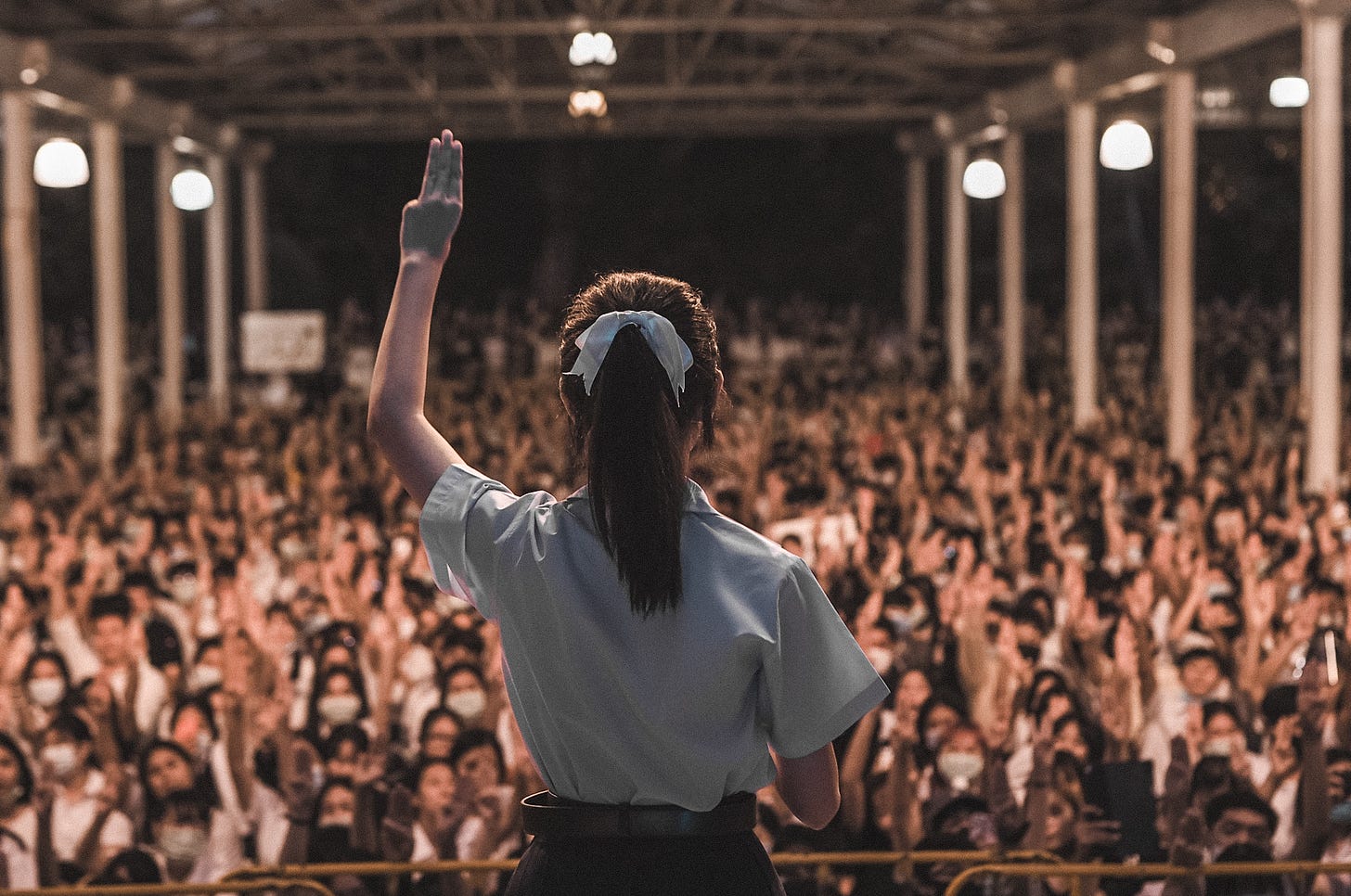
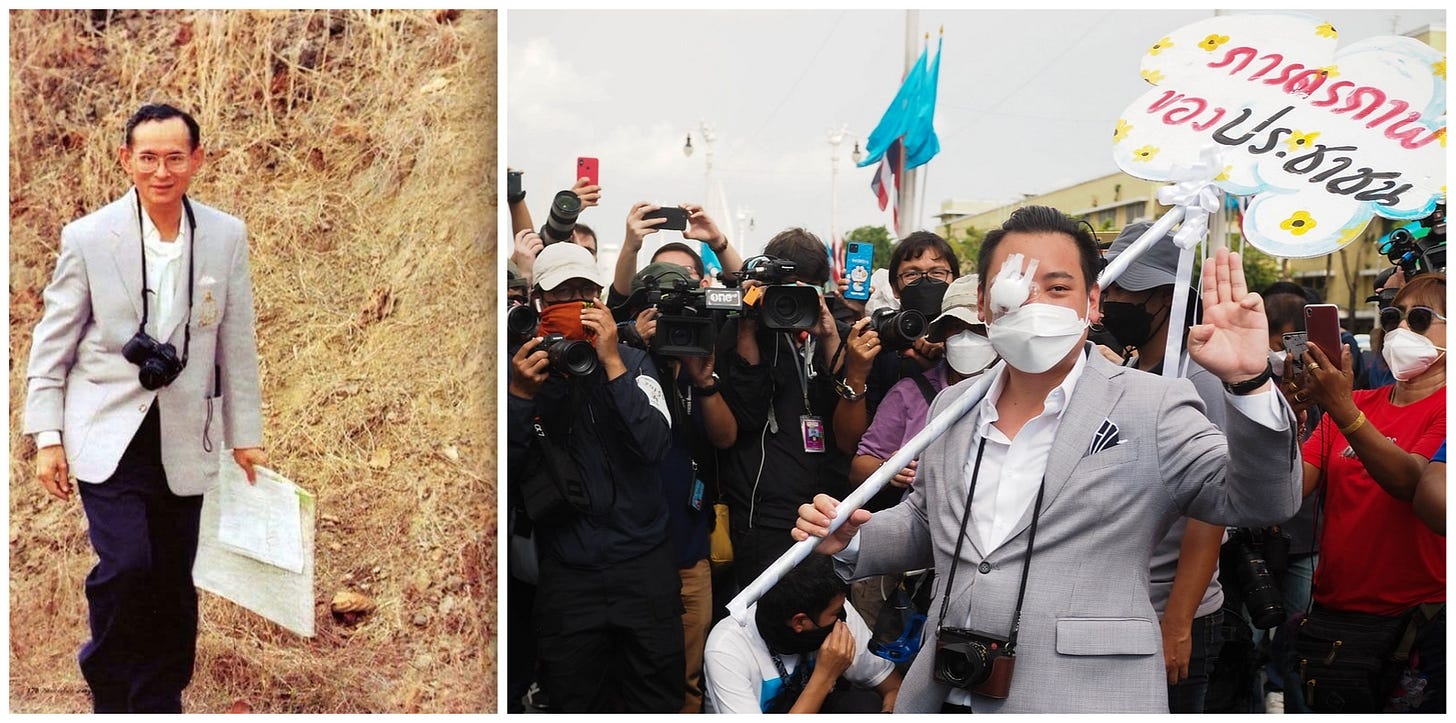
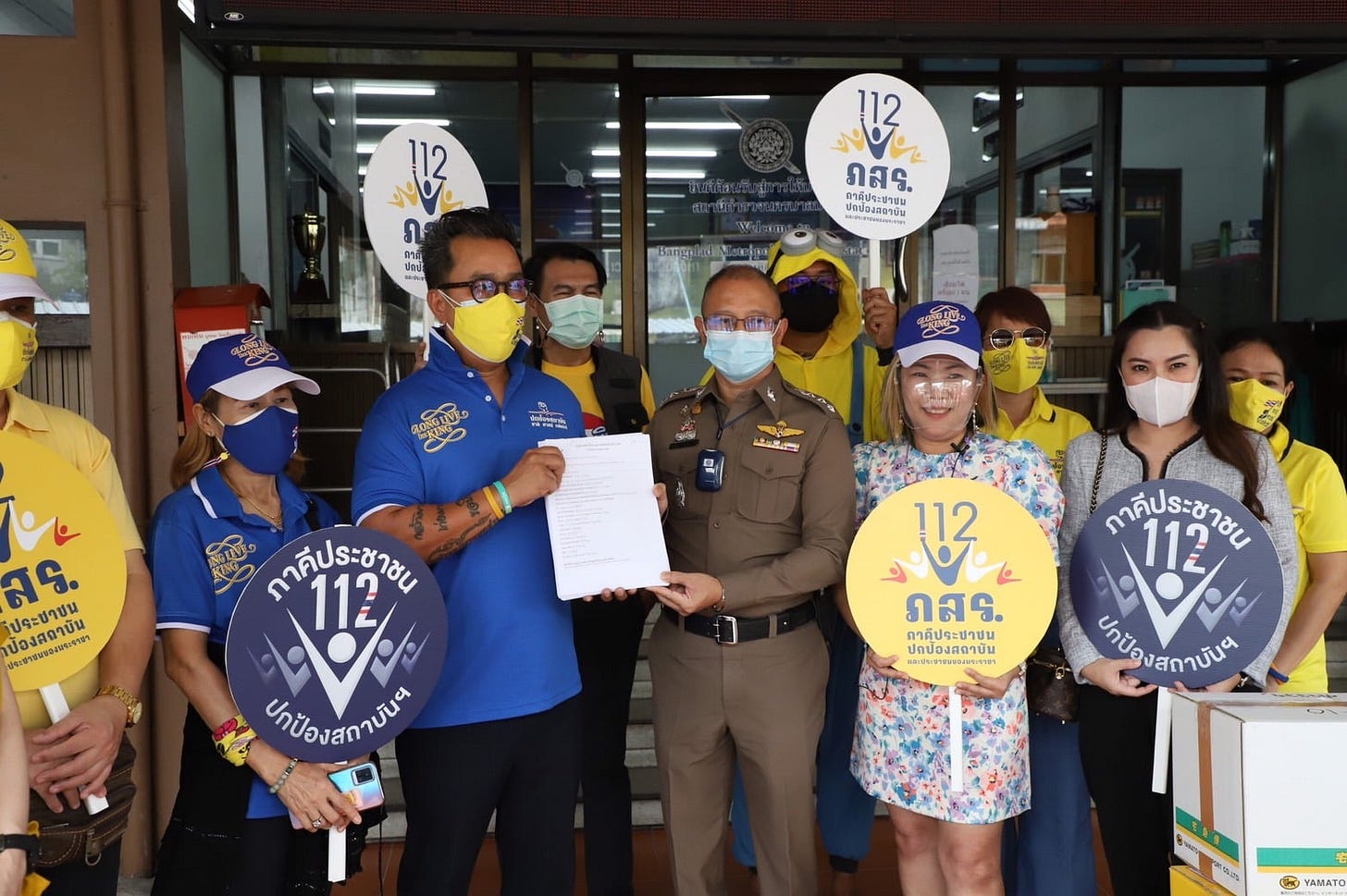
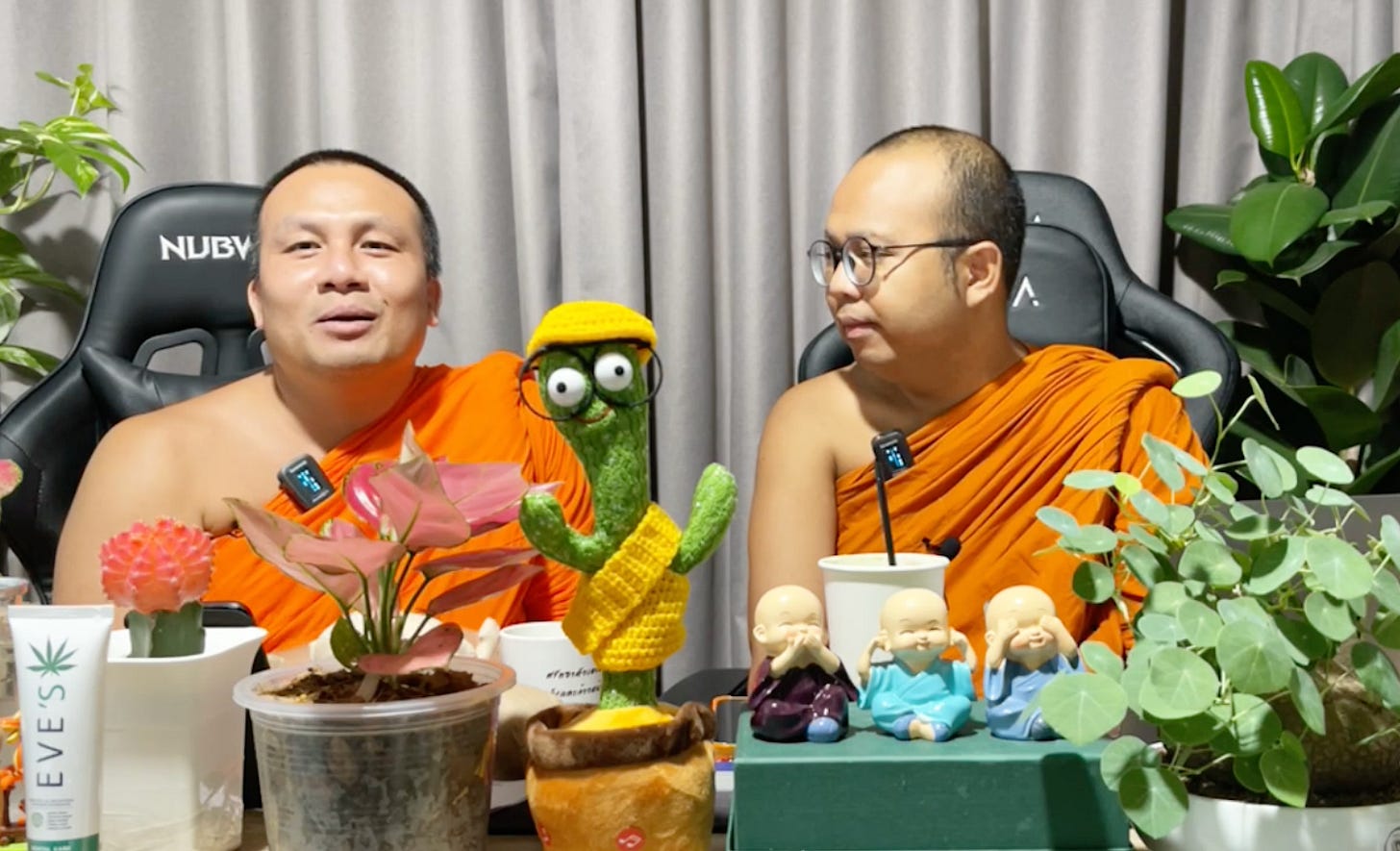
Regarding Thaksin and his bodyguard- Better to have him where you can see him, rather than running around with less salubrious people plotting who knows what. Mind you, I wonder what he was doing in 2006...
Re 'Jack' the twat- Should crowdfund a rebuttal writ against him for 'causing distress, falacious claims, ans mental harm'. Typical, if opportunistic, piece of buffalo manure...
Yeah, Mr.Andrew MacGregor Marshall. Thank you so much for this week very Informative and very insightful Secret Siam newsletter krub…😿❤️🌎👍